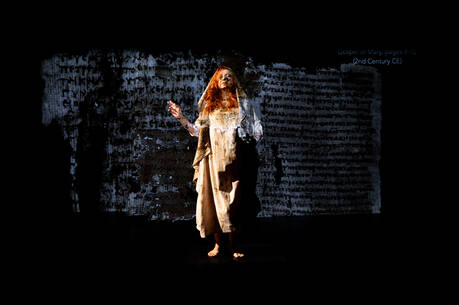The Vatican’s Dicastery for the Doctrine of the Faith has formally charged Archbishop Carlo Maria Viganó, former nuncio to the United States, with schism and has opened a penal trial in this regard. If convicted, he would be excommunicated and could also be removed from the clerical state.
The decision to open “an extrajudicial penal trial” against the archbishop was taken at a meeting of the senior officers of this same Vatican office on May 20, according to the decree that was leaked to the media, a copy of which America has seen. Archbishop Viganó also announced the news with a post on X.
Although the text does not say so, the officials who took the decision would have been the prefect of the dicastery, Cardinal Victor Manuel Fernández, the secretary for the disciplinary section, Mgr. John Kennedy, the undersecretary of the same section, Monsignor Philippe Curbelié, and the promoter of justice, the Rev. Robert Joseph Geisinger, S.J. They decided for the normal administrative extrajudicial process, which covers the way the dicastery deals with about 90 percent of disciplinary cases.
The decree says that it considered “superfluous” the prior investigation in accordance with Canon 1717 that states, “Whenever an ordinary has knowledge, which at least seems true, of a delict, he is carefully to inquire personally or through another suitable person about the facts, circumstances, and imputability, unless such an inquiry seems entirely superfluous.” This means that the evidence against him had already been collected by the dicastery and did not require fuller investigation. Much of it was already in the public domain.
America has learned that the decision to proceed with the extrajudicial penal trial would have been approved by the pope, since the accused is a bishop.
The decree said that on June 3, 2024, the dicastery “appointed the judge of the trial, the assessors, and the notary, officials of the dicastery.”
The decree summoned Archbishop Viganó “to present himself” at the dicastery in the Vatican on June 20 (today) at 3:30 p.m. so that he “may take notice of the accusations and evidence concerning the crime of schism of which he has been accused.” It specifies that this crime involves “public statements which result in a denial of the elements necessary to maintain communion with the Catholic Church: denial of the legitimacy of Pope Francis, rupture of communion with Him, and rejection of the Second Vatican Council.”
The extrajudicial penal trial is in accordance with Canon 1364 of the Code of Canon Law, which states: “An apostate from the faith, a heretic or a schismatic incurs a latae sententiae excommunication, without prejudice to the provision of can. 194” and that “he or she may also be punished with the penalties mentioned in can. 1336 §§ 2-4.” This means, among other things, that the excommunication would be declared publicly, and it would remain in force until the convicted person repents.
That same Canon 1364 also states: “If a long-standing contempt or the gravity of scandal calls for it, other penalties may be added, not excluding dismissal from the clerical state.”
The decree announcing the trial said, “the accused is advised that he has the faculty to appoint an advocate/procurator whom he trusts in order to be defended/represented in the present trial and that, if he does not, one will be appointed for him.”
It added, “the accused is also advised that in the absence of an appearance or a written defense, which must be forwarded to this dicastery by June 28, 2024, he will be judged in his absence.”
America has learned that Archbishop Viganó did not present himself on June 20, as requested, but an Italian journalist and friend of his published the archbishop's written response to the Vatican decree in his blog: “I consider the charges made against me as a motive of honor.” He said the Second Vatican Council “represents the ideological, theological, moral and liturgical cancer of which the Bergoglian ‘synodal church’ is the necessary metastasis.” He added, among other things, that “I reject and condemn the scandals, errors and heresies of Jorge Mario Bergoglio” and said, “with this ‘Bergoglian church’, no Catholic worthy of the name can be in communion.”
A canon lawyer (who wished to remain anonymous) who has read the archbishop’s defense statement, told America: “This is the major argument for the prosecution. His defense is a declaration of schism. It is the most egregious act of schism.”
He explained that the extrajudicial procedure envisaged usually does not take much time.
If the archbishop is convicted, the pope would then have to confirm the penalties.
Correction, June 21, 10:25 A.M. E.S.T.: Archbishop Viganó did not present himself to the Vatican court on June 20, as this report initially stated.







